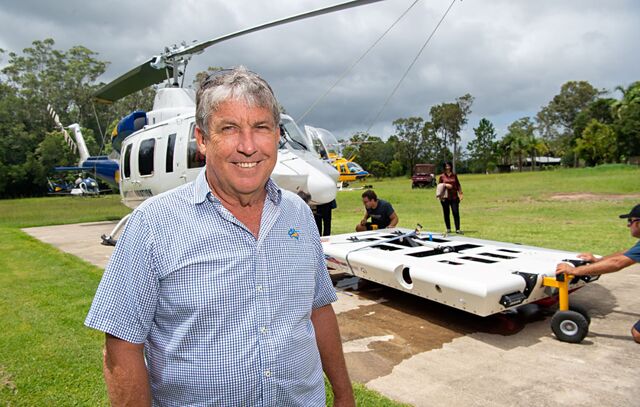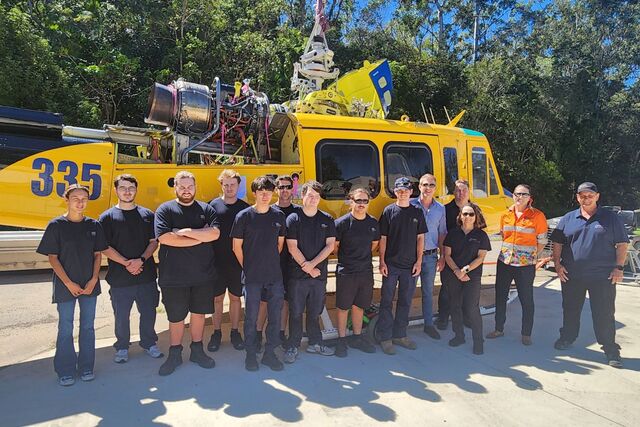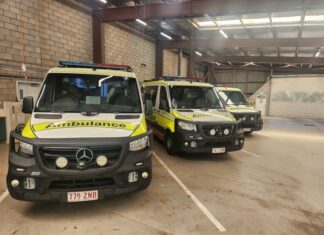A growing shortage of qualified engineers in the aviation sector has seen Australia’s largest heli-aviation operator, McDermott Aviation, throw their support behind a newly launched Aeroskills Industry Readiness (AIR) Program aimed at fast-tracking students into roles in the sector.
Over the past 22 years, McDermott Aviation has employed 75 apprentices and trainees, with 37 successfully completing their qualifications. The company currently employs 12 full-time engineering students under training contracts, with Aviation Australia as the supervising Registered Training Organisation (RTO).
McDermott Aviation founder and chief executive officer John McDermott, said, “As demand for the company’s services continues to grow, so too does the need to inspire more people to view aviation as a career that offers a range of diverse pathways. By offering traineeships, we can recruit and train people to our exacting standards.”
“This course prepares students who are ready to choose a career path, or who are considering a career change, to be instantly employable by companies like ours, should they decide they want to be in aviation.
“While the program focuses on engineering, we also emphasise the diverse range of career pathways available to students – roles such as trade assistants, logistics, operations control, and technical administration. These functions are all critical to the success of a global business like ours, where operational excellence depends on a skilled and versatile workforce.”
A shortage of aircraft maintenance skilled labour, especially engineers, is said to be at crisis point, and Mr McDermott said it is impacting all businesses in the sector.
“The shortage of qualified engineers is the number one impediment to growth for our company. To maintain operational capacity and support forecast growth, across both domestic and international operations, we estimate that we will need an additional 10-15 engineers over the next 12 months and that 20 to 30 engineering trainees will need to enter the pipeline over the next three to five years.
“We have the capacity to take on significantly more work, including the deployment of additional helicopters to Greece ahead of the upcoming fire season. A fleet is already prepared for mobilisation in the coming months; however, the shortage of qualified engineers limits our ability to scale further. The AIR Program represents a timely and constructive step toward addressing this critical skills gap.”
This pioneering initiative, developed by McDermott Aviation in collaboration with Sigma Aerospace College, with funding from the State Government under the Manufacturing Skills Queensland scheme, has been designed to integrate students with live aviation operations and will also allow McDermott Aviation to build a pipeline of potential talent.
“I am delighted that the current cohort of eight students are all showing exceptional talent and I fully expect that at the end of the course we will be able to offer them all a role within our organisation,” Mr McDermott said.









